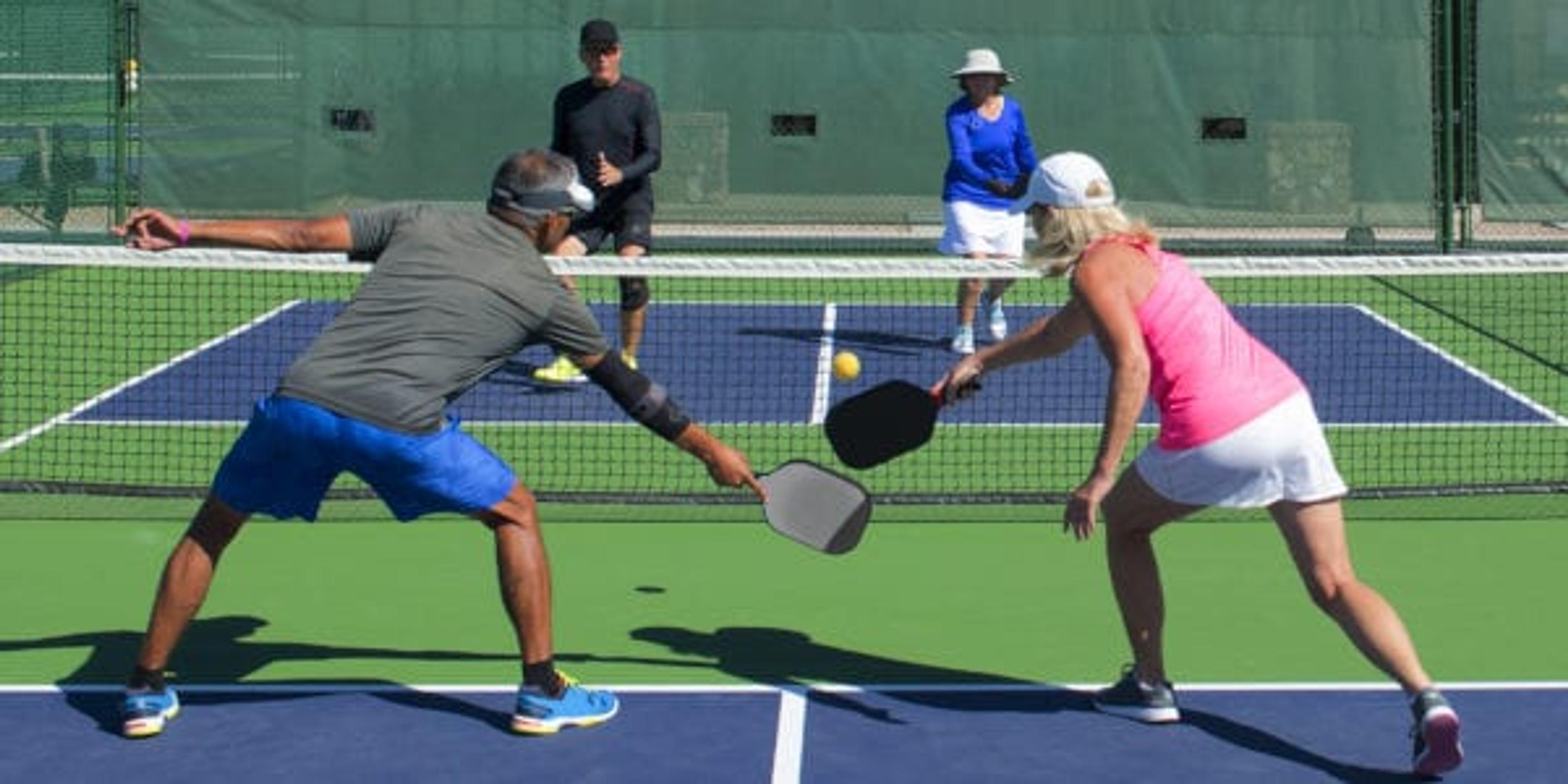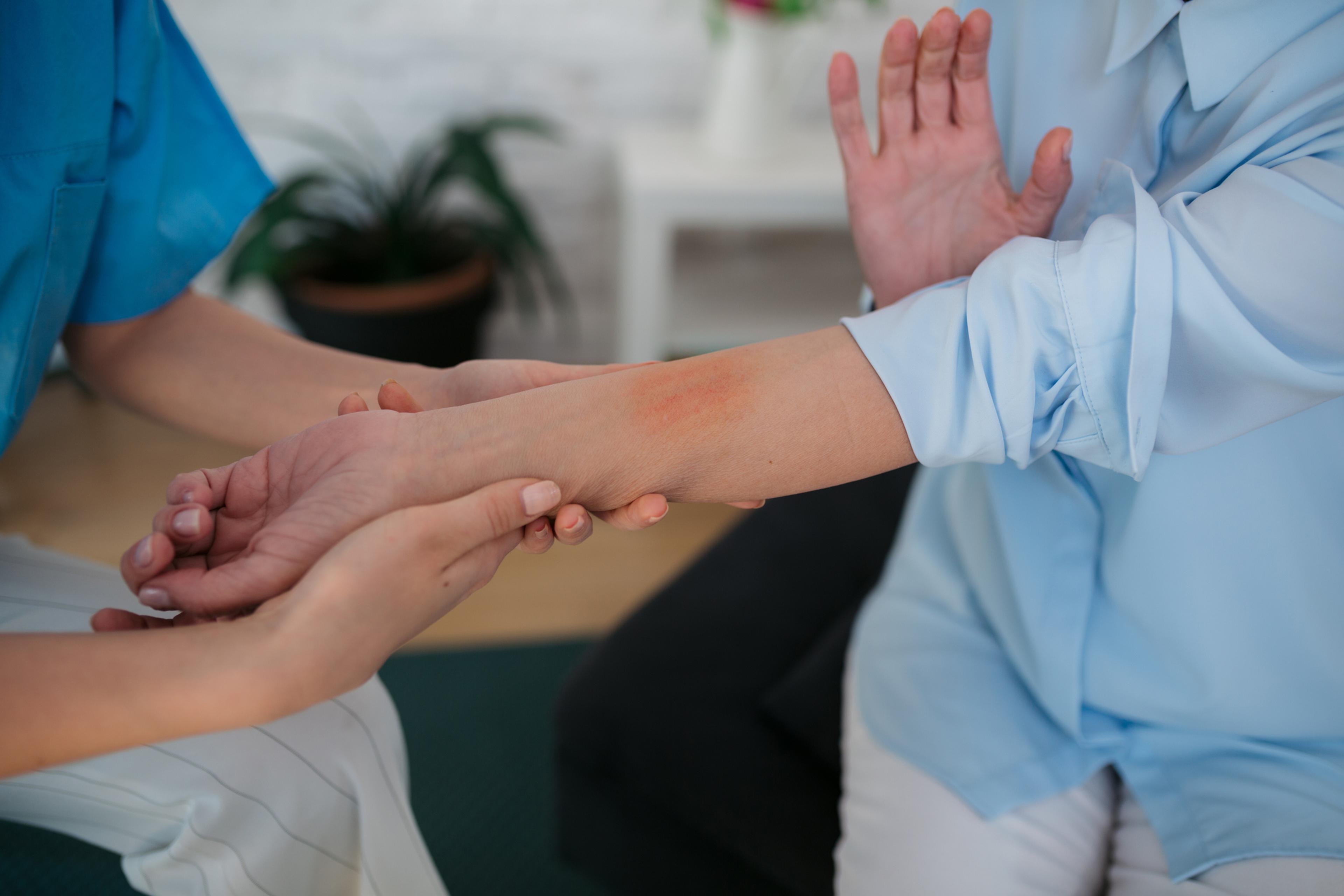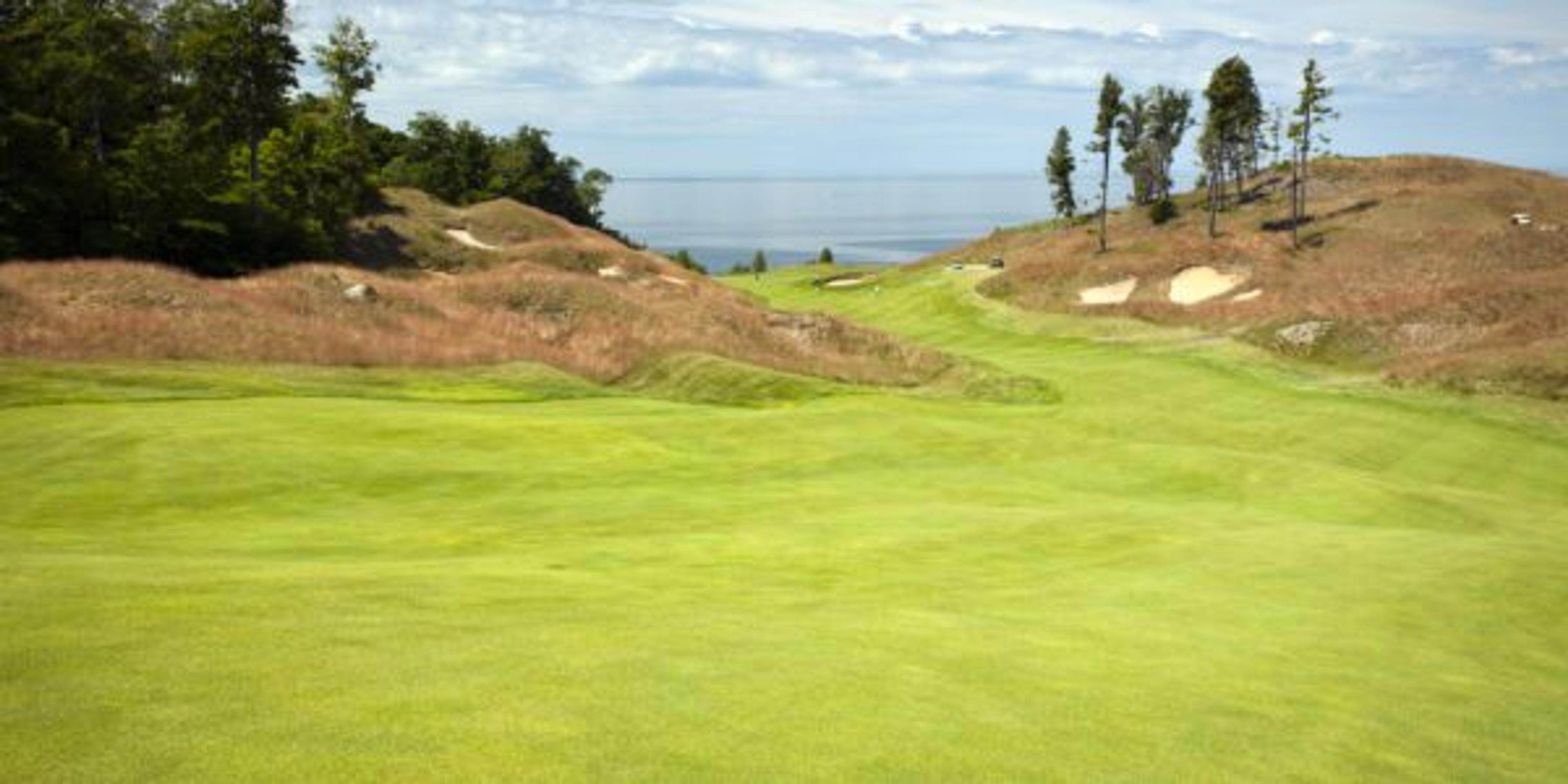Why a Growing Number of People Are Getting Active with Pickleball
Karly Hurley
| 3 min read

George Aquino credits pickleball for helping him melt away his 35-pound COVID-19 weight gain. The Grand Rapids resident picked up the non-impact sport in September and now plays five to six days a week.

George Aquino with Stephanie Oki Chun, his mixed double pickleball partner.
“I’m still eating what I want to eat, but my appetite is not as big and I’m burning so many calories, playing and drilling. So, really, from a health benefits point of view, it’s life-changing,” said Aquino.
Pickleball is often described as the fastest-growing sport nobody has heard of. Last year, there were an estimated 4.2 million players in the United States, reflecting a 21% increase over 2019.
What’s the appeal? It’s fun, social and friendly, according to the USA Pickleball Association. The rules are simple, so the game is easy to learn for beginners but can develop into a fast-paced, competitive sport for experienced players.
Pickleball popularity
The Grand Rapids Pickleball Club has about 750 members now, according to Grand Haven resident and Grand Rapids attorney Andrea Koop, who discovered the sport in 2017 and turned professional in 2019. Her aptitude for the game isn’t surprising considering she played tennis at UCLA in California and her team won the NCAA tournament in 2008.
She describes pickleball as a mix of racquetball, ping pong and tennis. The court size is roughly one-third of a tennis court, and players use graphite paddles with no strings to hit a plastic ball – that resembles a wiffle ball – over the net. The game is geared toward doubles and the compact court size requires quick reflexes.
In West Michigan, it is mainly a summer sport because there are about 60 outdoor pickleball courts and only a handful of indoor courts. A tennis court can be converted to two or even three pickleball courts.
Space for tournaments
Grand Rapids’ Belknap Park has 15 courts now and that is expected to grow to more than 20 next year.
“It’s definitely the largest facility of dedicated pickleball courts in the Midwest, and it’s something we’re really proud of in Grand Rapids,” Koop said.
The Belknap facility made it possible for Koop and Paul Richards to launch the Beer City Open in 2018, which began with $12,000 in prize money. And, after a hiatus in 2020 because of COVID-19, the tournament returned in July with $31,000 in prize money and 660 participants. A day was added to accommodate the increased number of players. With a beer garden and food trucks, the competition is also popular with spectators.
The Beer City Open is part of the Association of Professional Pickleball (APP) Tours. Most of the organization’s tournaments are in warm-weather locations, like Florida, Arizona and California.
‘A perfect transition’
Grand Rapids’ premier hotel, the Amway Grand, is planning to convert tennis courts to pickleball courts, and will put together packages around pickleball camps. Aquino, managing director of the historic hotel’s parent company, AHC+Hospitality, is taking advantage of Grand Rapids’ growing reputation for pickleball.
Like Koop, he has quickly excelled in the sport.
“It’s a perfect transition for former tennis players, young and old. It’s a smaller court. It’s still fast. It’s very competitive,” said Aquino, 57. “You have very similar strokes to tennis. It kind of brings back the glory for older guys like me because I can hit that same forehand or backhand smash without having to cover a court that’s three times bigger.”
Related:
Photo credit: Getty Images/George Aquino





